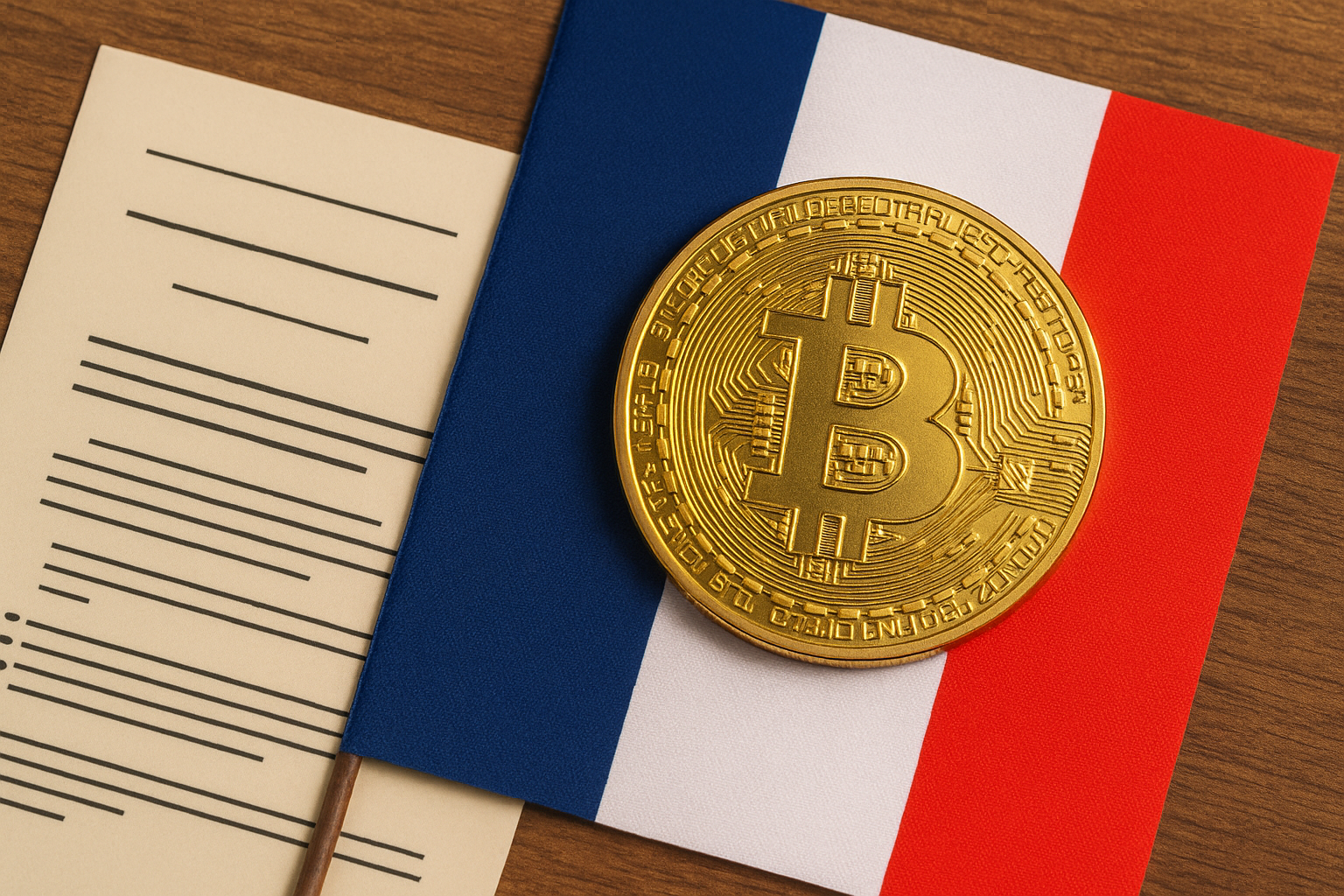🇫🇷 BREAKING: French lawmaker Éric Ciotti has introduced a bill calling for France to embrace Bitcoin and crypto as part of a “new monetary order.” The revolution might speak French this time.
France unveils bitcoin bill to build national crypto reserve

France has taken a decisive step toward integrating digital assets into its financial framework.
A new proposal led by French lawmaker Éric Ciotti calls for the creation of a national Bitcoin Strategic Reserve, positioning the cryptocurrency as a form of “digital gold”.
The bill, presented to the National Assembly in October 2025, aims to make France the first European nation to treat Bitcoin as a strategic national asset, potentially acquiring up to 2% of its total supply, or roughly 420,000 BTC, over the next eight years.
France plans to treat bitcoin as a national asset
The proposal, introduced by Ciotti and his Union of the Right and Centre (UDR) party, seeks to reshape France’s approach to digital finance.
It calls for establishing a Bitcoin reserve managed by a public authority, similar in structure to the country’s gold and foreign-currency holdings.
The plan outlines three primary funding sources for this reserve.
First, France would use its surplus nuclear and hydroelectric energy to support public Bitcoin-mining operations.
Second, the state would retain any Bitcoin seized during judicial proceedings.
Third, part of the savings from popular products such as the “Livret A” account could be allocated for small, daily Bitcoin purchases.
In addition, the bill proposes that French citizens be allowed to pay certain taxes in Bitcoin, pending constitutional approval.
Ciotti emphasises that these measures aim to strengthen France’s financial independence at a time when other nations, including the US, are attempting to purchase French mining assets.
The bill links crypto adoption with energy independence
The proposed Bitcoin strategy closely ties cryptocurrency to France’s energy policy.
With nuclear power already providing around 70% of the nation’s electricity, the government could channel surplus energy into Bitcoin mining without undermining domestic consumption.
Ciotti’s proposal also highlights concerns about foreign influence over France’s digital infrastructure.
The plan specifically references opposition to attempts by foreign buyers, particularly American companies, to acquire French crypto-mining and artificial-intelligence firms such as Exaion.
By maintaining domestic control over mining operations, the bill aims to keep both data and energy resources within France’s borders.
This energy-driven approach could also help France reduce waste from unused electricity while supporting a new, high-tech industry.
If implemented, it would make France one of the few countries to connect renewable and nuclear energy policy directly to cryptocurrency development.
Stablecoins and digital euro debate
Beyond the Bitcoin reserve, the bill proposes introducing euro-backed stablecoins for low-value payments.
Transactions below €200 would be exempt from taxes, enabling citizens to use digital euros or private stablecoins for small, everyday purchases.
However, Ciotti’s proposal also rejects the idea of a European Central Bank-controlled Digital Euro.
He argues that a state-issued digital currency could threaten citizens’ privacy and give governments too much oversight of personal spending.
Instead, his bill calls for a decentralised approach that would let the private sector innovate under government-defined safeguards.
The legislation also includes measures to attract investment into France’s cryptocurrency sector, such as lowering electricity taxes for miners and making it easier for institutional investors to purchase Bitcoin through regulated platforms.
Political challenges in the national assembly
Despite its ambitious goals, the Bitcoin bill faces an uphill battle in parliament. Ciotti’s UDR party controls only 16 of the 577 seats in the National Assembly, limiting its ability to push the legislation through without broader support.
Analysts believe that while the proposal may not pass in its current form, it represents a major turning point in France’s financial debate.
The introduction of the bill signals growing interest in how digital assets can serve as instruments of national strategy rather than speculative assets.
If enacted, France would join a small but growing list of countries exploring crypto integration at the state level.
Even without passage, the proposal elevates France’s position in the ongoing European conversation about the role of blockchain, mining, and decentralised finance in the global economy.
Broader implications for Europe
France’s Bitcoin initiative could influence how other European countries view the intersection of energy, technology, and finance.
By linking crypto-mining to clean-energy use and creating incentives for institutional adoption, the bill may inspire new discussions within the EU about balancing regulation with innovation.
The proposal also adds another dimension to the EU’s ongoing debate over the Markets in Crypto-Assets (MiCA) regulation, raising questions about whether member states should hold digital assets in national reserves or rely solely on traditional currencies.
Regardless of its political fate, Ciotti’s initiative signals a changing tide in Europe’s approach to cryptocurrency—a shift from caution and regulation to exploration and strategic integration.
The post France unveils bitcoin bill to build national crypto reserve appeared first on Invezz



